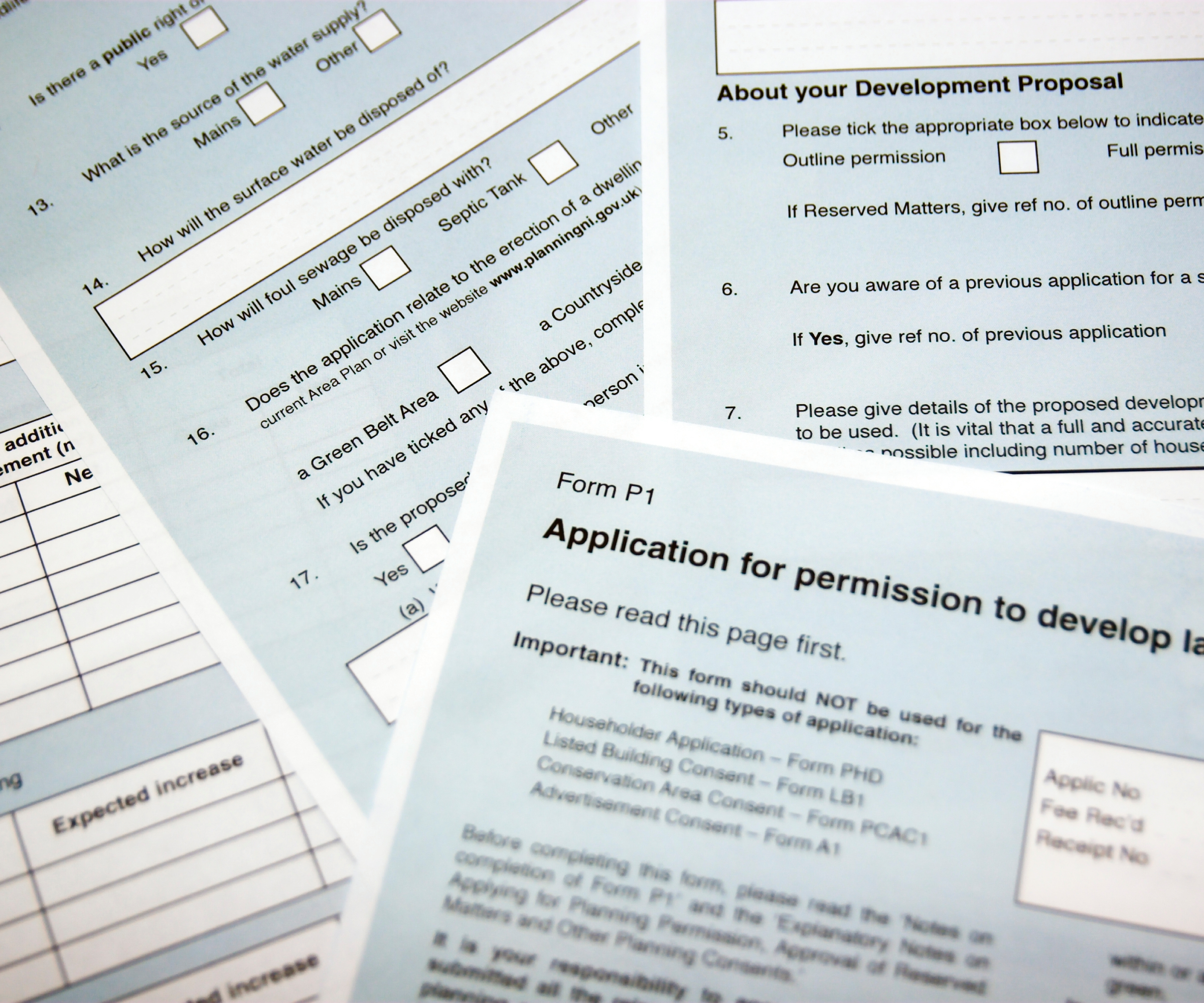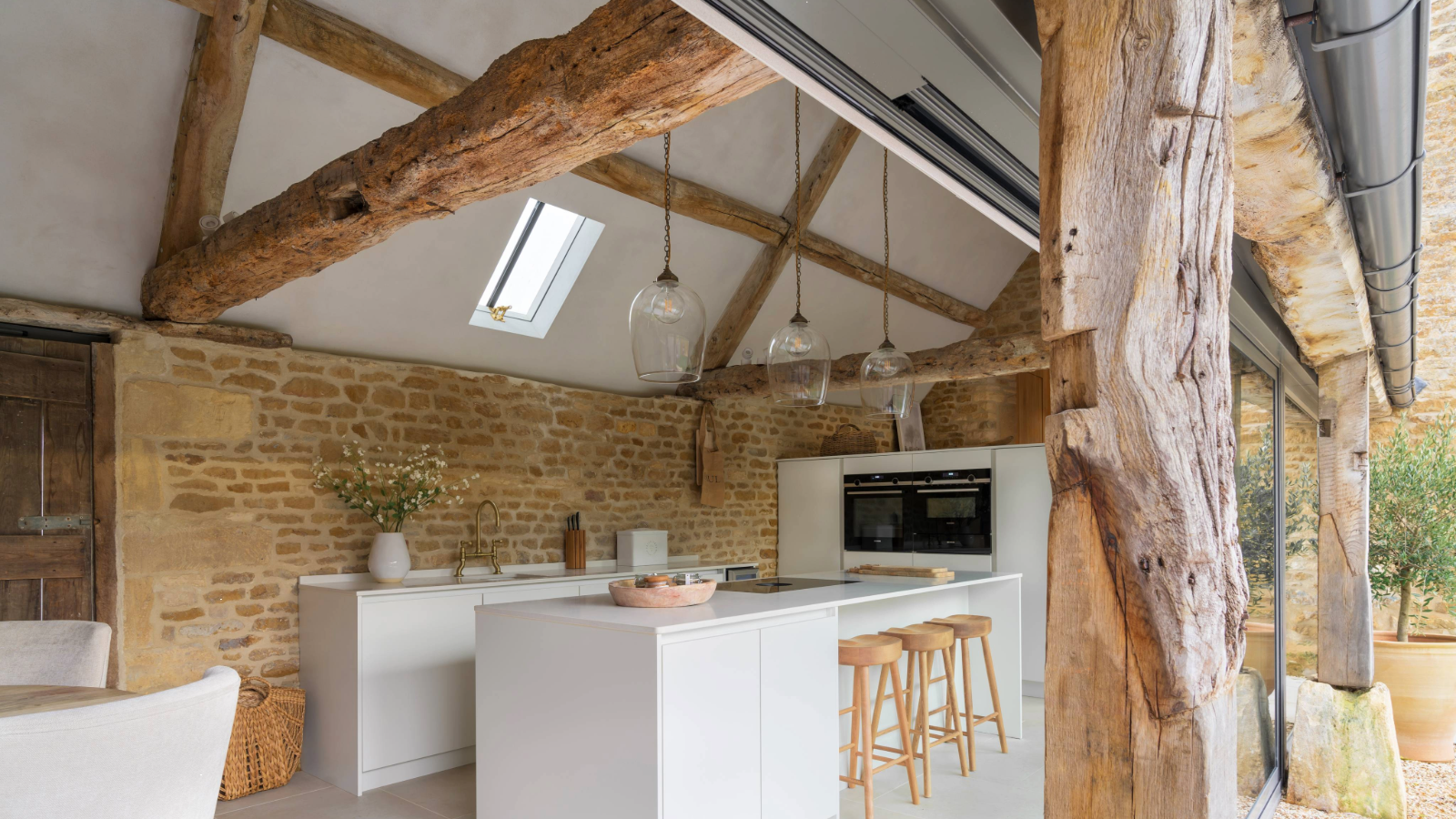
Bring your dream home to life with expert advice, how to guides and design inspiration. Sign up for our newsletter and get two free tickets to a Homebuilding & Renovating Show near you.
You are now subscribed
Your newsletter sign-up was successful
Whether your priorities shifted in the wake of COVID lockdowns or you're driven by the need to reduce outgoings and, more specifically, housing costs, buying land without planning consent has become an increasingly attractive path to building one’s perfect home.
But is it risky business that should be avoided at all costs? With years of experience to hand, our expert planning consultant, Simon Rix, tells us just what's in store if you choose to buy land without planning permission.
Understanding the UK planning system
Before I delve into the advantages of acquiring planning permission for unconsented land, it’s essential to grasp some of the intricacies of the UK’s planning system. Local planning authorities play a pivotal role in regulating land use and development.
Typically, securing planning permission is mandatory for construction projects, ensuring that developments align with local community needs and adhere to environmental standards.
Many think the restrictions are less than they are, and others underestimate the unhelpfulness of the bureaucracy that is Britain’s planning system, or rather systems, as each nation in the UK operates differently. My job as a planning consultant is to help people get over all those hurdles.

Navigating the land
The journey towards building your dream home on unconsented land is not without its challenges. If you’re intending to embark on this path, it is crucial to begin with a clear understanding of the regulations and the potential hurdles involved so you don't get your planning permission refused.
For many clients, the initial step is to determine whether a particular plot, or an existing structure that was originally intended for another purpose, can be converted into a residential dwelling.
Bring your dream home to life with expert advice, how to guides and design inspiration. Sign up for our newsletter and get two free tickets to a Homebuilding & Renovating Show near you.
To assist my clients in this pivotal phase, I provide them with a free initial red amber green assessment. Red means no chance of success. Green means it’s a dead cert. A plot marked “amber” indicates the need for further research and analysis. This is where many of my clients commission me to conduct a comprehensive and detailed planning permission appraisal and provide them with a report. These appraisals outline various critical aspects including:
Planning zones - identifying the zoning regulations that apply to the site is crucial. These zones dictate the types of developments permitted in the area.
Planning policies - this delves into national, local and neighbourhood planning policies, ensuring that clients are fully informed about the guidelines they must adhere to.
Planning history - examining any relevant planning history associated with the site is imperative. It helps clients understand the context and potential hurdles they may face and also helps them understand how the policies there are interpreted, as they are usually not black and white.
Options and likelihood of consent - the appraisal explores various options for the site and outlines the likelihood of obtaining planning consent for each. This critical step helps clients to make well informed decisions.
Delving deep into the intricacies of planning policies can often lead to the discovery of obscure policy routes that can benefit clients. In fact, uncovering these hidden gems can be an advantageous strategy, because it often means that other potential buyers may have overlooked the site’s full potential. As a result, the property or land can be secured at a more attractive price.

The potential of unconsented land
Acquiring planning permission for unconsented land offers self-builders the ultimate creative freedom. Clients can create their dream homes without the constraints of any pre-existing permissions or designs.
It can also save costs. Unconsented land often comes at a more affordable price than plots with pre-granted consent. It’s a chance to acquire land cost-effectively, and of course, the joy of getting consent for and then creating a home somewhere no one else had thought of is undeniable. ‘Beating’ the system that often seems out to stop you promises long-term satisfaction and a deep sense of accomplishment.
Challenges and risks
The path to securing planning permission for unconsented land is not without its share of challenges and risks. The intricacies of the planning process can be challenging and acquiring planning permission for unconsented land can entail a significant financial commitment, including design costs, survey costs and submission fees.
Building without prior consultation with the local community can easily lead to opposition, delays, or planning rejections. It's important to engage with the community and local councillors at the right time and in the right way.
Acquiring unconsented land in environmentally sensitive areas may also mean additional hurdles in obtaining planning permission, with extra environmental considerations and compliance required.
How to manage uplift clauses
While exploring unconsented land or existing structures with different usage permissions can often yield great results, it’s vital to exercise caution when dealing with uplift clauses.
An uplift clause is an agreement that allows the seller to benefit from any increase in the property’s value if planning permission is granted for residential development at a future point, even if it’s the buyer who does all the hard work in getting that consent.
For purchasers, uplift clauses can be a double-edged sword. On one hand, they offer the possibility of securing a property or land at an initially lower price. However, once planning consent is obtained, a percentage of the increased property value would then need to be paid to the original seller.
This can significantly impact the financial gains from the project, making it important to carefully consider the implications of such clauses before proceeding. My advice is to reject such clauses if at all possible. If you are firm with this, most sellers will back down.

Existing consent still allows for creative freedom
Even for plots or buildings with existing planning consent, it’s essential to remember that you’re not bound to build precisely what the permission dictates. The existing consent can mean you have the principle of constructing a residential dwelling on the site, which is often the most difficult obstacle already overcome.
This scenario might not yield as significant financial rewards as when starting from scratch on unconsented land, but it provides you with the flexibility to create the home of your dreams with fewer risks and it generally will take a bit less time, too.

It's a quest for value and creativity
While some individuals opt for the convenience of acquiring land or properties with existing planning consent, many others seek a more value-driven approach. Finding unconsented land and securing planning permission yourself has become an attractive proposition, enabling people to create their dream homes and benefit from the increase in property value that planning consent provides.
Whether you embark on this journey with a pristine canvas or breathe new life into existing permissions, the quest for value and creativity remains at the heart of the endeavour.
As a planning consultant, I absolutely love delving into the intricacies of this transformation, helping people to unlock their dreams and embrace a new chapter of their lives. I’ve got consent for lots and lots of people for sites where there wasn’t previously any consent, so the answer to the question 'is it a good idea' is absolutely yes. It can be a good idea, and for many people it’s the best thing they’ve done.

Simon worked as a planning officer and later an elected councillor for local government in the 1990s, beforing setting up Planix.UK Planning Consultants Ltd. He is a regular contributor to Homebuilding & Renovating
Simon Rix is a professional planning consultant, who began his career working in local government in the 1990s. He was a council officer and later an elected councillor, so he knows how the planning system works from both sides. He went on to set up Planix.UK Planning Consultants Ltd; a consultancy company that advises self builders, home extenders and those taking on small to medium-sized building projects on planning permission.

